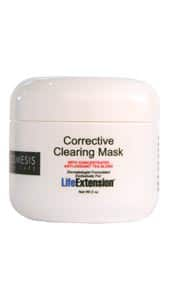
Newsletter
Newsletter
B Vitamin Supplementation Reduces Gray Matter Shrinkage In Cognitively Impaired Patients
B vitamin supplementation reduces gray matter shrinkage in cognitively impaired patients
Friday, May 24, 2013. A study involving older men and women at risk of dementia revealed improved gray matter maintenance in areas that are affected by Alzheimer's disease among those supplemented with vitamins B6, B12 and folic acid. The trial was described in an article published online on May 20, 2013 in the Proceedings of the National Academy of Sciences. Acting on initial findings of a decrease in whole brain shrinkage over a two year period in elderly subjects with mild cognitive impairment who were supplemented with B vitamins, researchers at the University of Oxford evaluated the effect of supplementation in the brain's gray matter regions. One hundred fifty-six participants in the randomized trial received a placebo or 800 mcg folic acid, 20 mg vitamin B6 and 500 mcg vitamin B12 daily for two years. Gray matter volume in several brain areas was evaluated via magnetic resonance imaging (MRI) scans performed upon enrollment and at the end of the treatment period. Although those who received the vitamins and those who received a placebo experienced atrophy in similar regions of the brain, subjects who received B vitamins experienced less total gray matter loss and showed significant reductions in atrophy in posterior regions and in the cerebellum, which are areas most affected by Alzheimer's disease. While the loss of gray matter in these regions averaged 3.7% in the placebo group over two years, those who received B vitamins experienced a loss averaging just 0.5%. When the subjects were divided according to high or low baseline homocysteine levels, those in the placebo group with high levels of homocysteine, defined as greater than 11.06 micromoles per liter, had more gray matter atrophy than those with low homocysteine, however, in the vitamin-treated group, no significant difference was observed between the high and low homocysteine groups. And while no significant benefit was determined for B vitamins among those whose homocysteine levels were low at the beginning of the study, in those with high homocysteine, gray matter loss in posterior regions and the cerebellum, as well as in specific anterior regions was significantly less in supplemented subjects in comparison with the placebo group. "Our results show that B-vitamin supplementation can slow the atrophy of specific brain regions that are a key component of the Alzheimer's disease process and that are associated with cognitive decline," Gwenaëlle Douauda and coauthors conclude. "Further B-vitamin supplementation trials focusing on elderly subjects with high homocysteine levels are warranted to see if progression to dementia can be prevented." |
||||||||||||||||
 |
||||||||||||||||
|
||||||||||||||||
|
||||||||||||||||
 |
||||||||||||||||
|
||||||||||||||||
|
||||||||||||||||
The latest news on aging, nutrition, and vitamins
Lab
Testing
How Life Extension lab testing works









